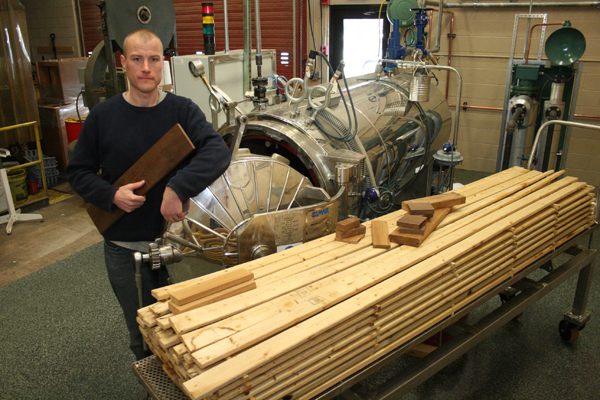New Kiln Advances Science of Thermally Modified Wood Products

This Research in Action article was provided to LiveScience in partnership with the National Science Foundation.
The wood products industry, which is vital to the upper Midwest economy, has been hurt by plant closures and cutbacks. Several bright spots on the horizon: an uptick in housing starts and an increased demand for engineered wood products. Also, the Natural Resources Research Institute is using a European technology involving a thermal modification kiln to improve the marketability of Midwest wood species.
The process makes trees species like aspen, red pine and basswood usable for products that today are made from western trees such as ponderosa pine. With funding from the National Science Foundation, NRRI is investigating the use of thermal modification techniques to improve the durability of engineered wood products such as cross-laminated timbers and plywood. The pilot-scale kiln will make it possible to collect data and validate the process to build the market for this improved wood.
The technology is a special heat technique that results in high-performing wood products. After modification, the wood is moisture resistant, with decreased swelling and shrinkage in humid indoor and outdoor applications. It is also more resistant to rot-inducing fungi.
“Our goal is to see regional wood species being used to make a new class of high-performance engineered wood products that excel in demanding environmental conditions,” said Matt Aro, NRRI’s lead researcher on this project. “We’d put more local loggers and truckers to work hauling wood to the manufacturing plants, which would help our critical forest products industry, much of which has a rural base, get back on track.”
Editor's Note: Any opinions, findings, and conclusions or recommendations expressed in this material are those of the author and do not necessarily reflect the views of the National Science Foundation. See the Research in Action archive.
Sign up for the Live Science daily newsletter now
Get the world’s most fascinating discoveries delivered straight to your inbox.










